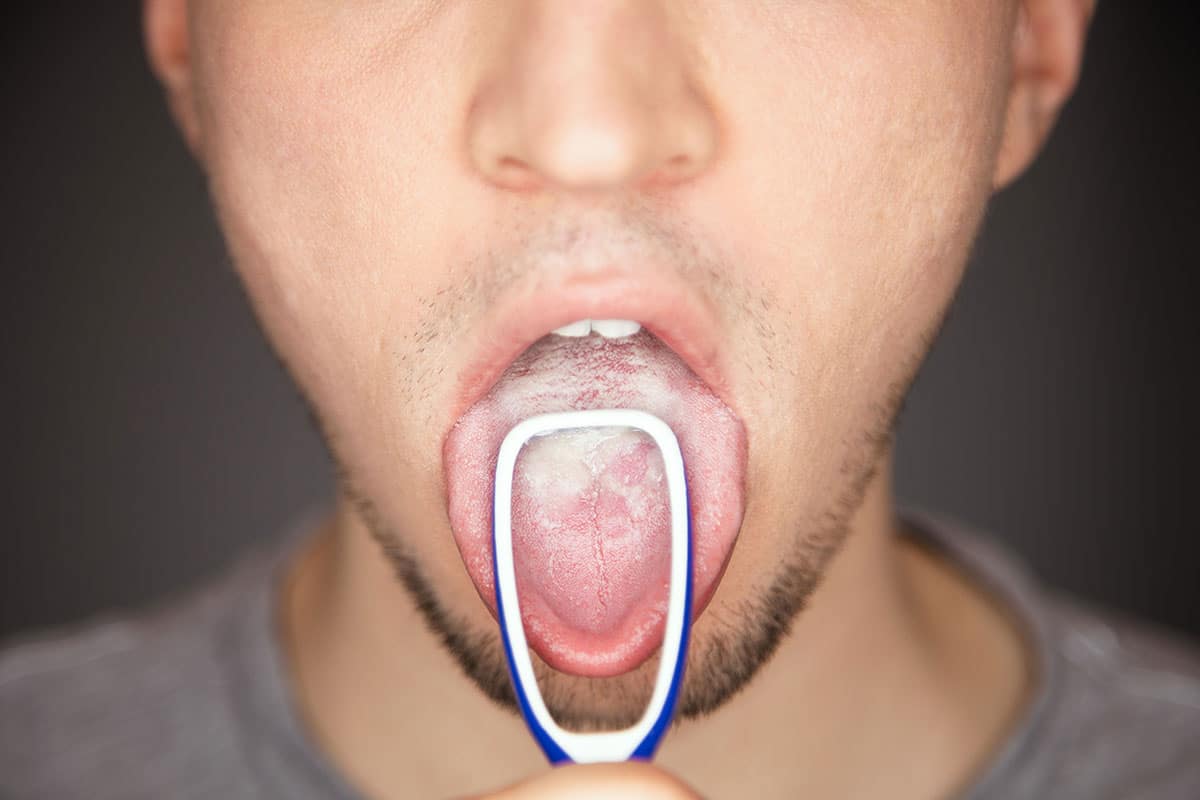The term halitosis describes a common oral health issue we’ve all experienced at some point – bad breath. For most of us, bad breath has triggers, like eating, drinking (or abstaining from both), smoking etc. but if bad breath seems to be a constant in your life then you may be suffering from halitosis. Spending your money on gum, breath mints, mouth washes might help temporarily mask the issue but it’s not getting at the root of the problem.
You’ve most likely heard you need to brush your teeth at least twice a day with regular flossing, and that’s usually enough to keep bad breath away – but if bad breath persists, you should speak to your dentist about it.
Common Symptoms of Halitosis
Bad breath or halitosis really only has one noticeable symptom – your breath smells bad and stinky. If you’re not sure about the odour of your breath, you can ask a friend or family member for their opinion.
Causes of Bad Breath (Halitosis)
There are many reasons that halitosis can be affecting your life. There are also different ways that halitosis affects each individual, with some people experiencing temporary bad breath and others struggling with a persistent, lingering odour. The latter variety, the persistent bad breath is most often caused by an untreated oral cavity, while temporary halitosis often stems from food or drinks that have been consumed.
There are however other causes, including:
- Oral diseases and other issues
- Sometimes leftover food and epithelial cells form a coating on your tongue which can cause unpleasant odours
- Poor oral hygiene, resulting in plaque, tarter, gum disease and cavities
- Reduced saliva due to illness, medication or sleeping
- Improperly cleaned dentures
- Gum diseases such as periodontitis and gingivitis
- Inflammation or sores in the mouth (stomatitis)
- Pericoronitis or swollen gums around unresolved wisdom teeth
- Implantitis or swollen gums around dental implants

Halitosis can also originate from your stomach due to intestinal obstructions or possibly stomach infections
Certain metabolic disorders have also been known to cause halitosis. These include:
- Diabtetes and ketoacidosis
- Trimethylaminuria which is a condition that doesn’t allow trimethylamine to be broken down by the body and the mouth to exhibit a fishy odour.
- Kidney failure
- Cirrhosis of the liver (breath may smell sweet, or often similar to excrement)
- Tyrosinemia, a hereditary disease causing a cabbage like odour
Medications
- Medications are known for causing dry mouth, a side effect that often causes bad breath.
- Bisphosphonates used to treat osteoporosis may lead to chronic halitosis.
Treatment Options for Halitosis
- Due to the wide variety of causes of halitosis there are a number of options to treat and manage bad breath.
- Practice good oral hygiene (brushing twice daily, flossing regularly and ensuring your teeth and gums are free from plaque and tartar build up
- Treating underlying causes of oral inflammation, gum disease and gingivitis
- Use a tongue scraper to help remove food particles and epithelial cells
- Avoid certain foods and drinks if you notice they cause bad breath
- Drink lots of water to stay hydrated
- Don’t smoke
- Rinse your moth with a specifically formulated mouthwash
- Stay away from sugar, including gum
- Visit your dentist for regular check-ups and cleanings to ensure your mouth is plaque, tartar and cavity free

Check us out on Facebook and Twitter for daily information about Oral Health from Martindale Dental, or visit our offices in Cambridge, Hamilton, and St. Catharines.
Have more questions?
Please contact us for all inquiries or to book an appointment with one of our convenient clinic locations. We look forward to hearing from you.




